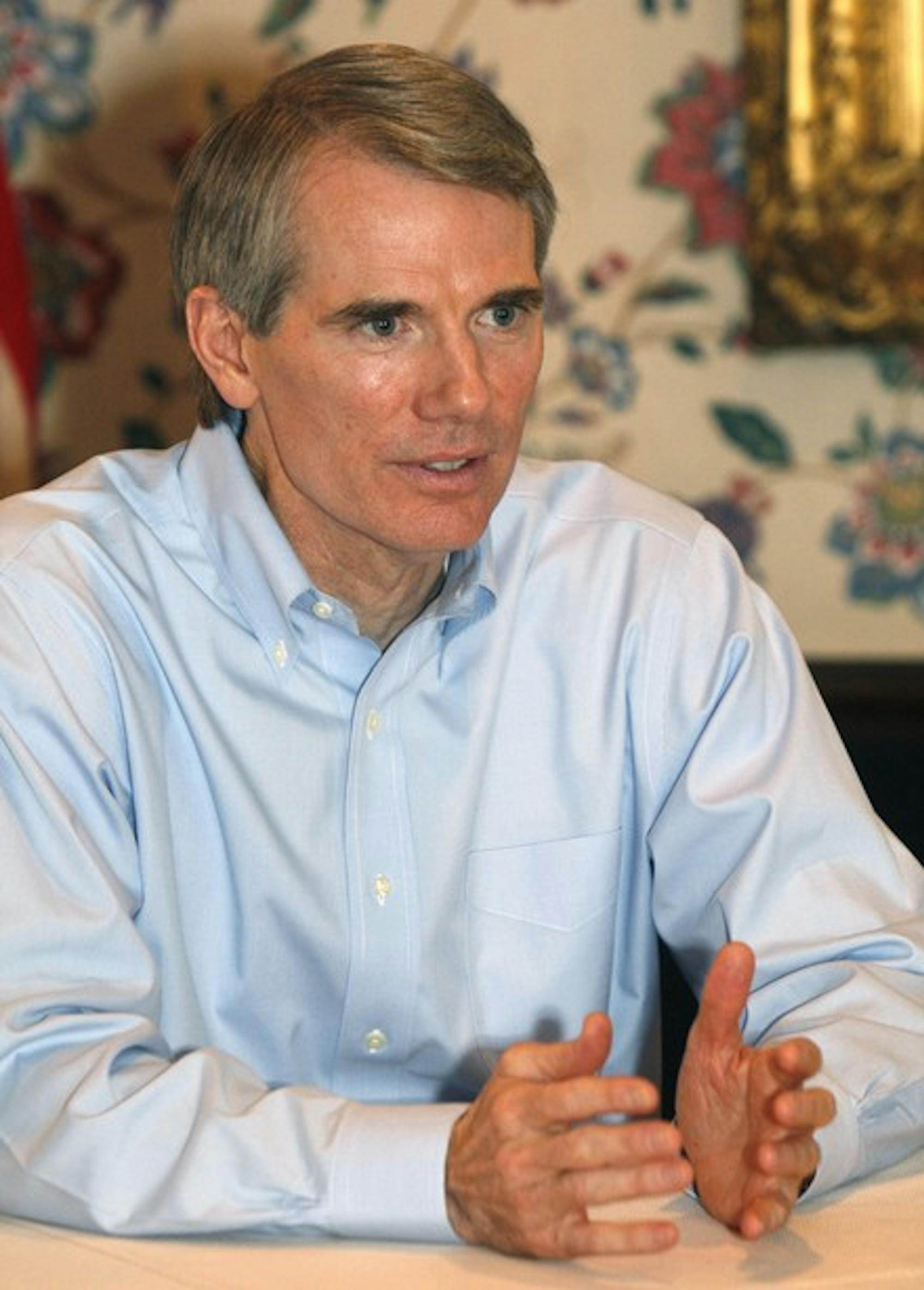Portman said he first learned more than six months ago that pundits considered him to be among McCain's potential running mates, although he sought to downplay his chances in an interview with The Dartmouth. He said he was surprised that his name had become part of the debate -- and doubts the likelihood of his selection.
"I thought it would last a couple weeks, and people would get bored of that name and be done," Portman said. "In any case, I honestly don't think I'm going to be picked. For me, it's sort of an academic question."
Portman stepped down as director of the Office of Management and Budget in June 2007 after 14 months in the position, citing a desire to return to Ohio to be with his family. He said he has enjoyed moving away from Washington, which has allowed him to spend time with his three teenage children, elderly father and other family members.
"I'm not eager to return to Washington right now," Portman, who currently works in the Cincinnati office of the law firm Squire, Sanders and Dempsey, said. "The timing's not great for me even to consider things like that."
Despite reservations about potentially becoming McCain's running mate, Portman voiced support for the presumptive presidential nominee. He has made several campaign appearances for McCain in recent months. If asked to serve under McCain, Portman said he would "have to cross that bridge if and when I came to it."
"It would be exciting to help the next president try to get some things done in Congress," Portman said. "We need to break through the growing partisanship that I saw in Washington."
Portman, who has earned respect on both sides of the aisle, has a reputation as a strong legislative force, according to his supporters.
These qualities could make him a strategic choice for McCain, who will likely have to work with a Democratic Congress if elected to be president.
Portman's efforts as a congressman and as director of the Office of Legislative Affairs under the first President Bush earned him a "tremendous amount of goodwill" in Congress, Andrew Samwick, director of Dartmouth's Rockefeller Center for Public Policy, said. The Rockefeller Center gave Portman its Public Service Award for 2008. Portman's bipartisan efforts, including his work on pension bills with Sen. Ben Carden, D-Md., then a representative, make him an attractive political choice, Samwick said.
Portman's support in Ohio, an important battleground state in the upcoming elections, also adds weight to speculation about his selection, Samwick said.
Portman's former district -- the Cincinnati area -- does not include members of the disaffected religious right whom McCain seeks to woo, Dartmouth government professor Linda Fowler said.
Some have also questioned the strength of Portman's name recognition in the state, given his extended stint in Washington.
Fowler, however, noted that this absence allowed Portman to escape a recent ethics scandal that has plagued many Ohio Republicans.
"He's that rare Ohio Republican who isn't tainted," Fowler said.
Portman's association with Bush could prove problematic, particularly given the efforts Sen. Barack Obama's, D-Ill., to paint a McCain presidency as a continuation of the Bush administration, Fowler and Samwick said.
These associations, though, also provide Portman with the economic expertise that McCain has said he lacks.
"[Portman] certainly isn't perceived as being an architect of the policies that have made Bush so unpopular, but he is perceived as being a friend to the Bush family," Fowler said, although she noted that the average voter may be unaware of the connection.
Portman said he believes that McCain is more likely to choose a current or former governor to round out his ticket, noting that the public often perceives these individuals as being less involved in the Washington political scene.
Such a choice, Samwick explained, would also ensure that voters see the vice presidential candidate as having strong executive experience.
Fowler, for her part, maintained that there is no true "perfect" nominee for the position.
"If John McCain were going to have the perfect vice presidential nominee, it would be a young woman who could mobilize the conservative right and appeal to swing Democrats, particularly blue collar women aged 45 to 65," Fowler said, "And have the experience to be able to take over immediately should something happen to McCain."




